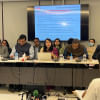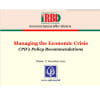Multilateral development banks need reform to expand capabilities: analysts

The Development Assistance Committee member contributions to multilateral organisations increased for the seventh consecutive year in 2022, but concessional financing for the poorest countries has decreased, potentially impacting poverty reduction and debt support efforts, analysts said today.
The multilateral development system is undergoing a significant number of challenges due to polycrisis, geopolitical shifts, and ongoing global financial architecture reforms, they said. However, while addressing crises, it is crucial to maintain core funding for long-term goals, they said at a webinar titled "Launching of the 'Multilateral Development Finance 2024' report".
The findings of the report, which was internationally launched on September 5, were shared at the webinar organised by the Centre for Policy Dialogue (CPD) and Organisation for Economic Co-operation and Development (OECD).
In her welcome remarks, Fahmida Khatun, executive director of the CPD, said: "OECD data shows that multilateral development finance's share of total official development finance has grown from 45 percent in 2012 to 61 percent in 2022."
"However, with increasing demand, the multilateral development finance system and Multilateral Development Banks (MDBs) need to expand their capabilities. This requires reform of both the system and MDBs themselves."
Abdoulaye Fabregas, economist of the Architecture and Analysis Unit of the OECD Development Co-operation Directorate, identified three key challenges for OECD members and multilateral stakeholders.
Firstly, multilateral development finance has seen significant growth, with OECD contributions reaching record levels in 2022.
A growing share of ODA is being channelled through multilateral institutions, which may soon become the primary ODA channel.
Secondly, crisis funding, driven by humanitarian aid, Covid-19, and the Ukraine war, has spurred this growth. However, there are concerns that long-term development issues may be neglected.
Thirdly, pressure to reform the multilateral system is increasing, with new entities and ongoing reforms of MDBs requiring careful monitoring.
He also added that the rise of emerging donors, such as China, introduces new opportunities but adds complexity and fragmentation to the system.
Dikshya Singh, programme coordinator of the South Asia Watch on Trade, Economics and Environment; Nisha Arunatilake, director of research of the Institute of Policy Studies of Sri Lanka; Sabyasachi Saha, associate professor for Research and Information System for Developing Countries; Rishikesh Ram Bhandary, assistant director of the Global Economic Governance Initiative of the Boston University Global Development Policy Centre; Muhammad Asif Iqbal, managing director of Social Policy and Development Centre, and Syed Yusuf Saadat, research fellow of the CPD, also spoke.

 For all latest news, follow The Daily Star's Google News channel.
For all latest news, follow The Daily Star's Google News channel. 








Comments